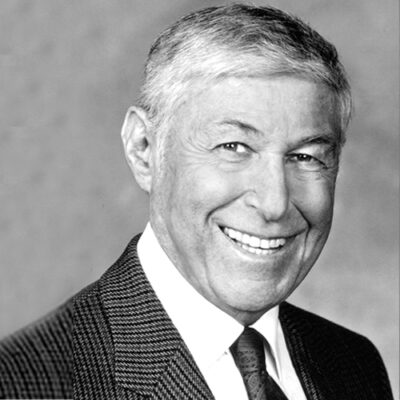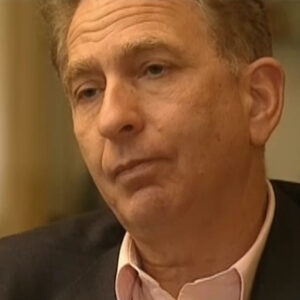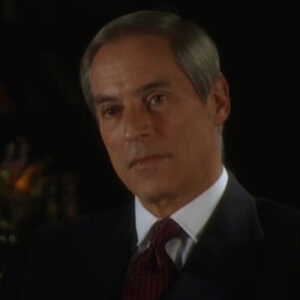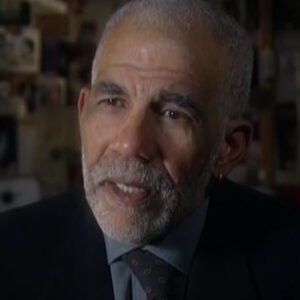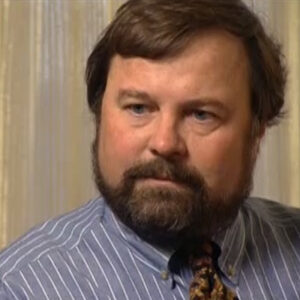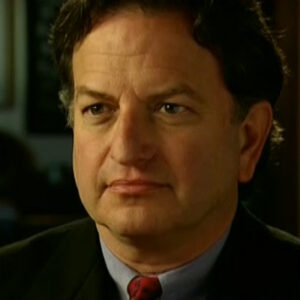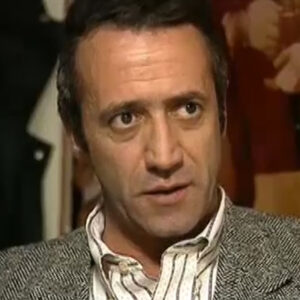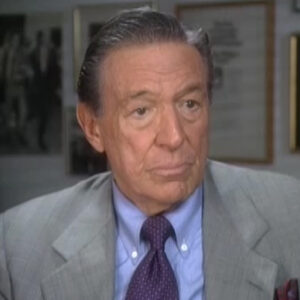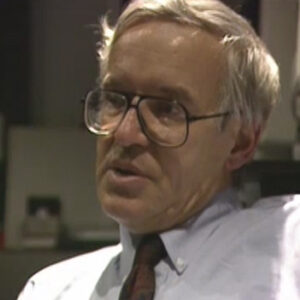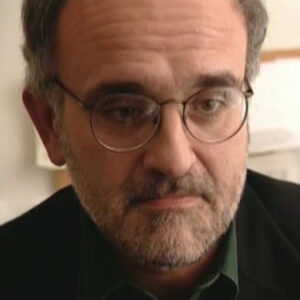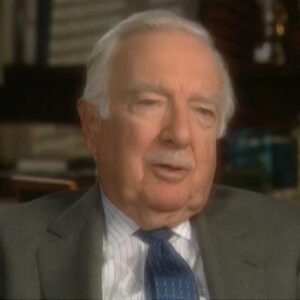Speaker And we are we have descending on US guidelines for just about everything, but the American system is quite extraordinary when it comes to fact checking, where you have a junior on the program who takes a script and checks every single line of it for factual accuracy. And I think that one of the great things about all American magazine newsmagazine shows is that what they put out is to their best endeavours the truth when it comes to facts. The problem with it is that in lots of news magazines, shows, they’re not interested in that many facts as they prefer to have emotion rather than information.
Speaker That’s absolutely true. Why don’t you start up by introducing yourself now? I’m I’m Paul Lynch.
Speaker I’m a news magazine editor in this country. I edit executive producer called What’s the Story, which is a three item news magazine show. Before that, I was the editor of Here and Now at the BBC for two years, which is a news magazine. Before that, I worked for ABC News as the overseas editor for Day one, which was a news magazine show. Before that, I was the editor of the British half hour single subject, Public Affairs Investigative from around the world called This Week, which had been in existence for 35 years. And one of one of the originals before that, I was the editor of a show that investigated the press in this country called Hard News for Channel four. I’ve made documentaries for BBC, TV, Channel four and I spent 13 years in the BBC. I left when John Birt arrived and at the time I was the deputy editor of Panorama.
Speaker Well, it’s quite an impressive background you have of a studied 60 Minutes.
Speaker I get this feeling I haven’t studied 60 Minutes. I think it’s impossible for anyone to be in the news magazine business without being totally aware of 60 Minutes and its importance in the development of the genre. I don’t watch every edition, but I’m aware of what they do. I’ve seen plenty of them. I know the major characters. I know Don Hewitt’s reputation. I know the format. 60 Minutes, you have to understand, is the sort of benchmark of what other news magazine shows around the world would like to be when a news magazine show grows up. It wants to be 60 Minutes and it wants to be 60 Minutes because they have the format, I think the best possible format for a news magazine in existence. And I will do this again because I can do it better. Go ahead.
Speaker I’m.
Speaker The thing about 60 Minutes. Is that every other news magazine show has drawn on some elements from it.
Speaker It is the benchmark for what a good news magazine show should be. It has every single ingredient you could possibly want. It has star correspondents who will have authority and credibility and believability. They have to sort of make them think and make them laugh agenda, make them cry. So you get those three elements in a show. It’s fast paced, it’s international, and it always seems to do stories that to an American audience would matter. And I think that every news magazine show editor would like to have a program that is successful, that lasts as long and enjoys the respect that it does and that everyone else would want to copy.
Speaker What do you know about what did you know about Don Hewitt in terms of reputation, in terms of rumor, in terms of whatever?
Speaker I mean, what’s the scuttlebutt? What’s the buzz about him?
Speaker Well, I think the thing about Don Hewitt is that he’s lasted as long as he has in the one job. Traditionally as news magazine editors, you do it and then you move on to bigger and greater things I think is the exception to the rule by reputation he’s facing. His standards are extremely high. He knows what makes good television. He has taught a whole generation, several generations of young aspiring journalists how to do it. He has made careers for star correspondents and he has produced a show that is just survive for nigh on 30 years. A considerable achievement. Absolutely. Absolutely.
Speaker Um, with the knowledge that you have about 60 Minutes and let’s say day one or perhaps 20/20 or Primetime Live, if everyone knows what the ingredients are that go into making 60 Minutes what it is, why can’t anyone else do it?
Speaker Well, everyone else has tried to copy the successful format, but Don Hewitt has developed over 30 years. And the problem is, because he’s been doing it for 30 years, it’s become sort of as American as apple pie or mother love or the presidency. And you’re used to it. You feel comfortable with it. It’s there every Sunday night. You know exactly what to expect. The correspondents have been there for years. You know who they are. You know the kind of stories they’re going to do. You just feel comfortable with it. There are few surprises in that sense. You are drawn in. It’s all very familiar. It is something that you’re used to. It becomes a part of your life.
Speaker So you are saying is therefore is hard, copy it, because you can’t become household world word just like that? Well, I think I mean, I’m wondering and be honest with you, I may never use this, but I I’m from a outsiders point of view, why hasn’t 20/20 or Primetime Live been able to achieve what 60 Minutes has achieved?
Speaker Well, first of all, I think that I mean, do you think I’m wrong?
Speaker No, I don’t think you’re wrong. I think that that 60 Minutes, as I said, is I think that 60 Minutes has always been the benchmark and everyone has been running to try and catch up. Once you’ve got this successful format in order to be different, to beat the number one, you have to have something extra special. And 60 Minutes is so special, it’s very difficult to try and do something that’s superior. It actually has the most recognized correspondents. It has a wonderful slot on a Sunday evening. It has a wide range of experience. It has a history of good journalism. It has credibility. Now, those things are built up over a period of time, years. You don’t get authority overnight. You didn’t get authority just by getting the news anchor to sit in front of autocue and read a script. You earn the trust and you and the loyalty of your viewers, and you do it over time. So there’s no reason why other news magazine shows in the states can’t become as eminent as 60 Minutes. But they’ll have to work. They’ll have to work 30 years to get there.
Speaker That’s true. When you were at twenty twenty, I mean, when you were a day one in America and when you were at day one, you were running the London office. Is that what you were doing?
Speaker I was, I was sort of London senior London producer. There was only one London producer as opposed to 60 Minutes where there are something like six.
Speaker You were there during the time that the tobacco story came out. What was it like being part of that organization when ABC was being sued by Philip Morris or whether it was BMW actually, wasn’t it? What was it like an.
Speaker The tobacco stores that Will Bogdanich did were extremely important stories. They mattered, and more importantly, it was a time when an American news magazine show was taking on a very large and very powerful corporate body in America. These weren’t minor individuals. This was a significant story with significant impact of enormous public interest. And it was extremely brave of ABC to have chased that story on several occasions, done a number of segments on it and pushed it. And it was not surprising that the tobacco industry would take umbrage at it. And so the point is ABC News, as history has shown, got it right.
Speaker But. They got it right, but then we find that they settled out of court, that Diane Sawyer got on the air and gave a public apology, it gave off a funny message.
Speaker Well, I don’t know the ins and outs of the reasons why ABC decided not to push it. It may have had something to do with the fact that ABC had been taken over by Disney and that Michael knew corporations taking over someone else. They wanted to clear the decks and start afresh. And so they may have encouraged their lawyers to settle out of court or do whatever was necessary. But I think that if they had fought the case right the way through to the end, they would have probably won at the same time as shown that the facts were accurate. The story was true.
Speaker Well, let me ask the question in a slightly different way. If you hypothetically were the editor of a magazine format show, what would you have done have done if you were, let’s say and I knew its position and they and Lowell Bergman and Mike Wallace had made a program on Jeffrey Wagon and the the CBS News president, Eric Oprah had come down the decision that this is not going to be aired, we’re not going to stand by you, that we want this program stopped. The lawsuit is too expensive for us. What would you have done?
Speaker Always difficult answering hypothetical questions. The key really is if you are going to do good journalism, you have to have some independence from the corporate interests of the company you’re working for. And the senior executives have to have enough faith and confidence in whoever is running the show that whatever they transmit is the truth. The aim of journalism on television is to produce the truth. And if it is factually accurate, if you are correct, if you are legally sound, you would air it. If there is flack as a result of that, then you support your team and your program 100 percent and you fight it and you fight it through the courts if necessary. That’s what you do.
Speaker Do they do that here in Britain?
Speaker For the most part, I’m glad to say they do. But there’s a fundamental difference in America. If you take on a large corporation, they can sue you for billions and billions of dollars.
Speaker The CBS suit was for 15 billion dollars. They said it would make them break them.
Speaker Well, it could bankrupt them. And therefore, you have to you have to weigh up the consequences in America. Everyone runs to their lawyer. Everyone sues everyone about everything because no one will take responsibility for what they do. And I would be terrified if someone slapped a lawsuit on me for umpteen billion dollars. It’s unlikely to happen here. But also there is a different tradition here in investigative journalism that where in the United States of America, most investigative journalism is done by newspapers. It’s done by The Washington Post, it’s done by The New York Times.
Speaker Television tends to follow up somebody else’s investigation. They may add to it, but fundamentally, they will go and interview the reporter who did the story. They won’t originate the investigation. Exactly the opposite is true here. Most of the hard investigative journalism in Britain is now done by television for the simple reason that television has more resources, it has more money, and often it has more editorial support. On top of that, because it’s heavily regulated by government bodies, it doesn’t mean to say we’re in the in the we’re a mouthpiece of a piece of government or that we’re hand in glove with anybody. But because we’re heavily regulated, we have to get it right. If we don’t get it right, then we’re sued and they take us to the cleaners. But most of the time we get it right. That is why British television programs have brought down. Ministers have toppled CEOs of major companies, have exposed corruption in very, very high places, not fiddling around on the margins margins with some crooked doctor in some place you’ve never heard of in the States and careless about.
Speaker That’s the fun. That is a fundamental difference between American investigative journalism and British investigative journalism. And I would urge you to pick up any newspaper any day of the week and you will find references to a Panorama investigation, a world world, an action investigation, a dispatches program. And you will see them week after week when these programs are running and their seasons, you will see they are breaking stories.
Speaker Hmm, interesting.
Speaker I go out about that, but I know I can’t use it because my question would be something of the fact that the tabloid, the tabloid nature of British print journalism is. So extraordinary that I would imagine that they’d have to get there. I mean, I don’t want to get into it because but it seems like it’s the opposite. There’s tabloid TV in America and there’s tabloid print journalism, the equivalent of hard copy.
Speaker And yeah, it’s exactly the equivalent of the Daily Mirror in the Sun. That’s I’m not talking about that. I’m talking about, you know, The Guardian, The Daily Telegraph, The Times. It’s interesting. The Independent know. It’s very interesting.
Speaker In your opinion, as an outsider, as someone who’s worked for, let’s say, a 60 minute competitor, why would someone want to appear on 60 Minutes?
Speaker You’d want if you were going to be the subject of a story and you had every news magazine show in the States chasing you and you had the choice, where would you rather appear? Europea on the one that most people watch? You’d appear on the one in which Mike Wallace is going to interview you.
Speaker Hey, look at me. You know, Mike Wallace is coming to my house. Mike Wallace is coming to my death row cell. Hey, beat that. All you got was Barbara Walters. You know, it is because it is what it is because it’s number one, if you are going to have to do it, if you’re going to be in the spotlight for your 15 minutes of fame because you are some appalling person or you happen to be a celebrity for that short period of time, you know, where else are you going to appear? And it’s not about money. It’s about prestige. 60 Minutes are going to do my story.
Speaker Now, let’s talk a little bit about this star, the reporter as the star. Let’s talk about the pros and cons of that.
Speaker And having a star reporter, especially one that you’ve grown up with, did you feel that you can trust is a tremendous asset to any news magazine show, not only because they bring authority and credibility, but it’s a familiar face. You feel as though you know them.
Speaker The downside is that they sometimes become more important than the stories they’re covering, not only to the viewer. They believe it. They actually believe when they come to London that because they are who they are and I’m not going to mention any names that the queen is going to give them an interview. It is laughable. The queen doesn’t give interviews, but there are certain star reporters in America who think that it’s me. Cool. She’ll give me an interview. The other downside is they become monsters. They hold the networks to ransom. They win when it’s when it’s contract renewal time along they come and say, right, I am walking off to buy your rival NBC or ABC or whatever happens to be unless you pay me seven million dollars, seven million dollars to be a television reporter.
Speaker The president of United States of America, the Muslim, the most powerful man in the world, is paid a fraction of what any bog standard run of the mill correspondent on any network network is paid.
Speaker It’s absurd, isn’t it? It is absurd. And I think that I mean, and 60 Minutes probably would be done. You were probably the first person to say that, you know, it’s the sort of his critics, to some degree, a monster also, anyhow.
Speaker Is that why 60 Minutes won’t exist? I mean, you can’t make a 60 Minutes really, in the UK.
Speaker No, of course, you can make 60 Minutes in the U.K., but there doesn’t seem to have ever been one made. Well, hasn’t been a program called 60 Minutes. There have been plenty of programs that are derivative, that have the same format, which are very human interest stories with star reporters, with a mixture of investigation features, celebrity with a bit of commentary. Various people have tried it, but they are all fundamentally copies of a very, very simple format that Don Hewitt worked out 30 years ago. And actually a lot of it based on what British television used to do back 30 years ago, programs like Panorama, where not a single subject for 40 minutes, 30 years ago, they used to be newsmagazine shows in which all the reporters or correspondents would appear in the opening titles. They would be short films, they would do jokey pieces. They would do serious pieces that do set piece interviews with a person in the news.
Speaker You know, the formats aren’t that aren’t that difficult. It worked here 30 years ago. People then change it. These things go in cycles. You know, you notice suddenly in American television, they’re starting to experiment with the hour on a single subject, turning point being an example where they suddenly say, hey, maybe people can take a bit more on the single subject, hey, maybe we can give some information. Hey, maybe, you know, we can rate Americans being a little more intelligent than we first thought and perhaps they can actually stick with something for a full hour. And so you see the invention of a program like Turning Point in the hope that that people will stick with it. And if that format is a success and it will take time to develop and impinge on people’s consciousness that they make a date with it, then other people will follow. But in current affairs terms, it’s always been either 30 minutes or an hour. It’s been a single subject or has been a magazine. There’s no great secret to it. The secret has been that CBS did it first in America, stuck with it, built on it, more importantly than that, put a great deal of money into it, because these programs, unlike lots of other programs on the network, make them money. They don’t buy them from someone else. It generates enormous amounts of money. I can remember one newsmagazine show one year making 200 million pounds profit. Now, that is the kind of kind of revenue generated by a top ranking Hollywood movie. And at one stage in the late in the late 80s, there were 11 newsmagazine shows on the networks, all making vast amounts of money in England.
Speaker No, no, no.
Speaker And in America, yeah, I think I think it’s true to say in America that it is the success of the news magazine shows they pull in so much money that they keep the news operations afloat. Oh, it’s a fact. Absolute fact.
Speaker Yeah, it’s true. Are there we just have a couple more questions and then we’ll be able to go and does 60 Minutes, in your mind, treat everyone equally, all their subjects?
Speaker In what sense? Well.
Speaker There’s been some some of the criticism brought against 60 Minutes is that they don’t treat all people equally. In other words, if they have this doctor in a small town in America who is being accused of fraud, you know, they will go after them with tooth and nail.
Speaker If they have a person who’s more well known, who has more connections, who is a bigger business person, they they who they might be invited to dinner parties with, who they know that they are much softer on that. There’s a kind of hierarchy about how they attack those who are helpless and those who are very powerful. And so I guess that’s what I was asking you. And I don’t know if that’s true. This I’m just telling you, that’s a criticism.
Speaker And it may be maybe that all people are like that.
Speaker You know, I’m I can’t answer that because I don’t know the editorial policy of 60 Minutes.
Speaker But I would assume that if they had the goods on somebody, really had the goods on them, they would go for them hammer and tongs in the same way they would go for some some someone who was small beer. I don’t think that’s the problem.
Speaker I think the fundamental problem with a lot of news magazine shows in the states, and I think that 60 Minutes is as culpable as everyone else is in the type of targets they go for. If you are one of the top rated shows in America, Bar none and you are the leader, the brand leader in news magazine shows, then you should be setting your big guns at big targets. And what happens is you probably know an awful lot about Paula Jones and about a president who is allegedly drops his trousers all the time. And you know that he’s a womanizer, allegedly. But what you know about whether or not he’s a crook, what you really know about Whitewater is the president, a man who had his hand in the till. We all know he chases women. That’s a given. But what do you really know? But actually, in television terms, it’s far more interesting. It’s far more sexy. It’s far more salacious to do the big interview, sit down interview and be first to hear every piece of detail about what happened in that hotel room than to actually find a way of explaining to ordinary Americans what on earth the Whitewater scandal is about, because actually it’s very, very difficult to do in a grubby, intelligent way. And then I think is symptomatic of the news magazine shows in the states. It’s about emotion.
Speaker It’s about getting people to cry on camera. It’s about reinforcing stereotypical ideas. It’s all crime involves black people. Women are always victims, has another child crying. Oh, isn’t it sad? And all the big stories, all the important stories, anything of real public interest, anything that really matters, what people do behind closed doors in your name are not tackled because actually it’s too difficult. It it’s too dangerous because it doesn’t when you have very many friends, because it causes headaches and because actually it’s easier to go door step the little guys and look big. And then I think it’s not just a 60 Minutes problem. I think that is a general problem with news magazine shows it’s the easy option. And I would ask the question, tell me the last time Congressman or in the Senate, there was a debate about a 60 Minutes item where people were really angry about what they’d exposed or what they’d done, where they had really effected change, where they had brought down a government, where they had forced the resignation of a cabinet minister, where they had examined major flaws in American policy. Where do you where do you see these things?
Speaker You don’t what you do is you read about them in The New York Times. You read about them in The Washington Post. And then maybe three weeks later, when they get their act together, a news magazine program will cover that subject.
Speaker In all fairness, the Pentagon I mean, in all fairness, The Washington Post certainly broke the story on Watergate, but 60 Minutes certainly exposed all the entire Nixon cabinet and did it, you know, beautifully. But that was, what, probably about 60 minutes to fame.
Speaker How long ago was that? That’s in the mid 70s, yes. How long ago was that? Twenty years. Yes. I agree with you. I’m saying that when they were they were hungry. They didn’t. Back to the days of Ed Murrow. Yes.
Speaker And campaigning, journalism, advocacy, telling Americans what they needed to know about the rich and powerful who did things in their name behind closed doors. It is the job of journalism to seek those things out, to expose, to tell people what is happening. Not simply to entertain them with often a very tabloid agenda.
Speaker Well, that brings me to something, Don. You always says that his secret to success is four little words. Tell me a story. Does that simple formula tell me a story conflict with what is necessarily always good journalism? Yes.
Speaker Tell me a story. The president is a crook. Oh, really? Everything is a story. We’re all told stories if you want to engage people. It’s like when you were a child sitting on daddy’s knee, you know, he would tell you a fairy tale. You go to sleep. It would have a beginning. It would have a middle and it would have an end. A newsmagazine shows the end is not always a happy one. People don’t live happily ever after. But you can tell a story. It is the great key to all journalism. That’s why they are called stories. Every news editor on a newspaper in radio and television says our top story is of course. Of course, it’s once upon a time the end. There’s no that’s no great. That’s no great secret that the Knack is being able to do it exceptionally well with style, with panache, with flair, with people who you can believe, with people who come across that that piece of glass into your home, who are talking to you and you feel as though you know and can believe in. And if you’ve got people of the caliber of Mike Wallace, Morley Safer and Dan Rather when he was on the program, Diane Sawyer, they have believability and they have the journalistic authority that’s terribly important. And they do it in a very grabby way.
Speaker What I was trying to say was that, yes, but if you some people would say that some some of things that would make that are good journalism are not always good stories, that the two are not always the same things that you’re saying that are factual, that are and they don’t involve a sympathetic character that don’t. There are. I’m just trying to sort of repeat here.
Speaker What I have read has being the criticism of 60 Minutes and trying to see what you feel about it. And I’m not sure that that it’s coming across.
Speaker You mean sometimes 60 Minutes doesn’t do stories that matter? They’re interesting. They may be of interest to the public, but they’re not in the public interest.
Speaker Yes, to a great degree.
Speaker But I think I think everyone is guilty of that. Look, I’m sure that television is not about boring the pants off people.
Speaker It’s about doing a show. It is about entertainment. You can be as highfaluting as you like about it, but you want people to watch. And you don’t just want a few people to watch. You want millions of people to watch. Therefore, you have to have a format to draw them in. And you can mix and match items in an hour format in a 60 minute format in which at the heart of it can be a very tough story marked by lighter things that have drawn people in and got seat and got bums on seats. And in the process you can inform, you can educate while you entertain. And it’s the skill in the storytelling is doing that. It’s imparting information as well as doing it in an entertaining way. Sometimes they pull it off, sometimes they don’t. One of the best 60 Minutes I saw had nothing to do with investigative journalism. It had nothing to do with big exposure. It had nothing to do with having a top celebrity pouring their heart out or some poor wretch crying all over Diane Sawyer. It was a piece about art. Why is this canvas that is totally blank art. It was clever, it was intelligent, it respected the viewer and it told you something about art and that in a newsmagazine format is just as acceptable as doing the. Aren’t we clever? Aren’t we gung ho? Look, we’re in a war zone type of investigative journalism. Just the real enduring success of 60 Minutes is not just the winning format, not the style, not the storytelling, not having style celebrities. It is the fact that it’s endured for so long, for so long, that everyone else wants to be like 60 Minutes and is the only news magazine show or factual program that I know of anywhere in the world. It’s actually started to franchise the format in Australia. Now they have a version of 60 Minutes that is exactly the same stopwatch. Black site presenter correspondents sitting and sitting in big armchair, except they have Australian voices and might have one or two American reports in it. But they’ve sold the the the shape, the style, the editor.
Speaker The pacing, everything is the same, except they use local people to do it, and it’s rather like McDonald’s or a Kentucky Fried Chicken or Dunkin Donuts, they are the Dunkin Donuts of television journalism.
Speaker I think that’s wonderful. I’m going to ask you, though, if you would you would you find a way to say the same idea to me?
Speaker And I love the way that you brought in McDonald’s and Dunkin Donuts and all their franchises. Could you try to say it in a sort of more concise way shorter? Yeah, try.
Speaker It started out that way and then it kind of got, you know, a little flowery, tend to be a little flowery. Yeah.
Speaker And the enduring success of 60 Minutes has nothing whatever to do with it. So the enduring success of 60 Minutes has.
Speaker I’m sorry, I should have not asked you to repeat it. All right, let’s let’s start again.
Speaker What is so special about it being franchised?
Speaker Well, the ultimate success of 60 Minutes is not only everyone wants to grow up to be like 60 Minutes if there are news magazine show, but the fact that they’ve also franchised the format, there are a number of countries now which produce a version of 60 Minutes in which they have bought the rights to the ticking stopwatch, to the way the presenters present each piece and the pacing and the length of items. These become the sort of McDonald’s or Dunkin Donuts of news journalism.
Speaker All right, thank you. All right. Now, I think it’s a very interesting thing, and I had not really thought about it because I guess I hadn’t as a as a non American, I mean, as an American insider, I knew they had started 60 Minutes in Australia, but I hadn’t thought of it as a franchise. But you’re absolutely right.
Speaker The interesting thing here is when everyone thinks of, oh, my God, we’re going to have to think of a new way of doing what we would call current affairs. Long form journalism is called current affairs here. Everybody says, why don’t we do 60 Minutes now? They don’t actually mean let’s get a lot of older guys with the newspaper background and a very old editor to edit it. But the the basic idea, three or four items, keep them short, keep them sweet, make them laugh, make them cry, make them think, have a bit of sex and celebrity good storytelling. Package it all neatly. Zap, zap, zap. If you don’t like this item, you’ll like the next one. Type of journalism is an ideal format. So everyone says, let’s have a 60 Minutes type format. They don’t actually mean let’s buy into 60 Minutes and do it the way 60 Minutes do it. Let’s do it our way.
Speaker But there’s this whole thing that you’re saying that brings up. What do you think? Do you think what will happen to 60 Minutes after Don Hewitt isn’t there any longer? I mean, he’s not a young man and Mike Wallace is not a young man.
Speaker The format is everything. It wouldn’t actually matter whether Don Hewitt was there anymore or not. I know Don Hewitt from reputation is very hands on. Nothing goes out he hasn’t seen. But everybody now knows what that format is and how it works. He has shown the way and it would not be on the wit of CBS to have a replacement who could step in immediately afterwards. You know, he should be he should go out into retirement. He’s in his 70s, for heaven’s sake. You know, British news magazine journalists do it for three or four years and then become a head of a department to become vice president of this or that. They don’t carry on week after week going into a cutting room, screaming at people, saying, you know, go get me that story, get me that interview and signing their expense forms. You know, they are enjoying extremely fat salary with share options, ordering everyone else around from a great height, but actually spending most of the time on the golf course.

